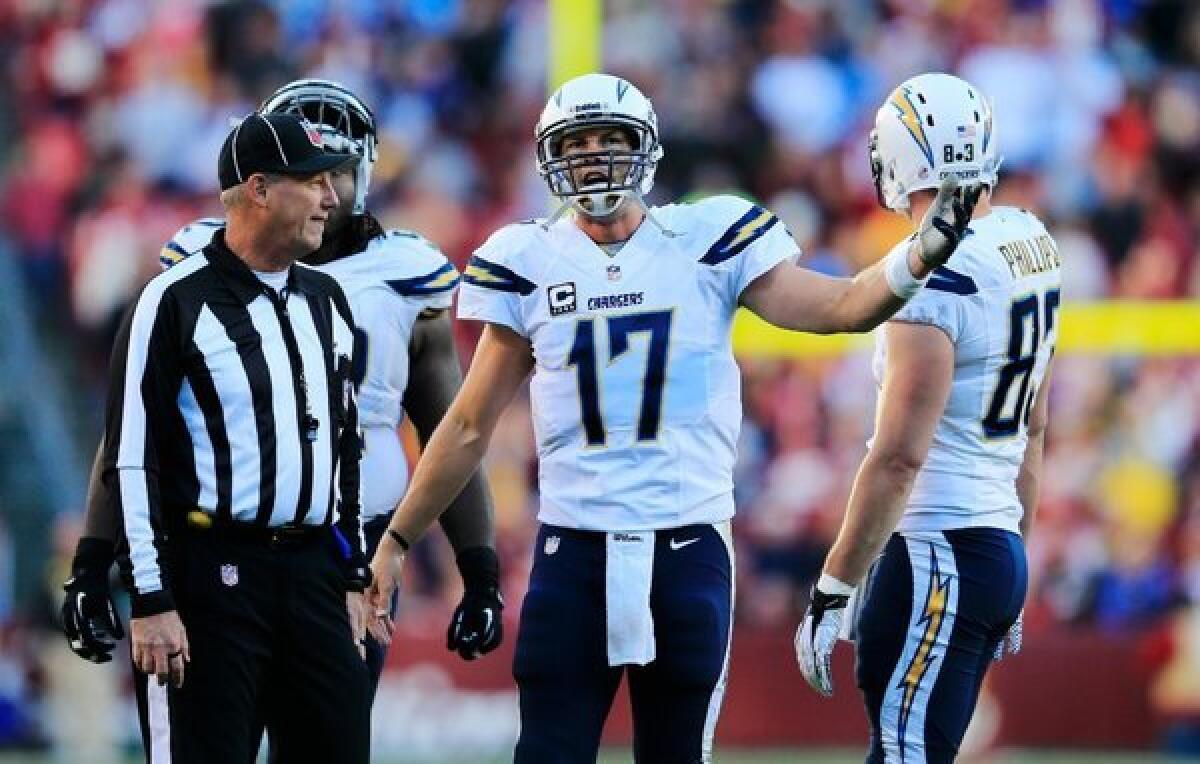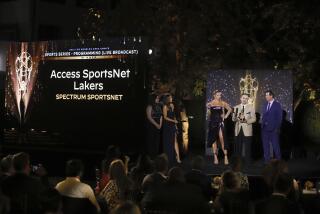FCC’s sports blackout rule is more complicated than it sounds

- Share via
Last week, the Federal Communications Commission made news when it said it was reviewing the 40-year-old sports blackout rules.
But there is a lot of confusion out there about what exactly the blackout rule is, how it works and what its removal would mean for both fans and the media.
In a nutshell, for decades TV deals between sports leagues and their broadcast rights holders have contained clauses that prohibit them from showing a sporting event if the game is not sold out. For example, if the San Diego Chargers did not sell out, then the game could not be shown on local TV in the San Diego area.
ON LOCATION: Where the cameras roll
But that is not the FCC’s blackout rule. What the FCC’s rule does is prohibit a cable or satellite operator from circumventing those agreements between sports leagues and TV stations by importing a distant signal of a game that should be blacked out.
In other words, if a San Diego Chargers game was blacked out, a satellite company, say Dish Network, couldn’t import the signal of the game from elsewhere and show it there.
This also means that getting rid of the blackout rule wouldn’t mean the local station could suddenly show a game that wasn’t sold out because after all, that would violate the station’s agreement with the league. It means a pay-TV distributor could show it no matter how mad the league or local rights holder gets.
PHOTOS: Cable versus broadcast ratings
Although such blackout provisions are in all sports contacts, they typically apply only to broadcast television and not cable TV. Since the majority basketball, hockey and baseball games have migrated to cable, the blackout issue primarily applies to the National Football League.
Blackouts used to be commonplace in the NFL. In 1980, 35% of all games were blacked out in a team’s home market. By 2000, the figure was down to 14%. Last year, only 6% of games were blacked out and this year none have been blacked out.
In pushing for a repeal of the rules, Mignon Clyburn, who until Friday was acting chairman of the FCC and is now back to being a commissioner, said, “changes in the marketplace have raised questions about whether these rules are still in the public interest, particularly at a time when high ticket prices and the economy make it difficult for many sports fans to attend games.”
PHOTOS: 2012 highest-paid media executives
The NFL and broadcasters are against lifting the blackout rule. Cable operators and satellite broadcaster Dish are in favor of gutting the rule. Indeed, the lobbyist for the advocacy group Sports Fans Coalition that has been pushing to get rid of the rules also does work on behalf of Dish.
The two big questions here are whether the rule is still necessary since the NFL sells out practically all its games and if it did go away, would a pay-TV distributor really want to incur the wrath of the league and the broadcasters they do business with by showing games that otherwise would not be available?
ALSO:Acting FCC Chairwoman looks to gut sports blackout rule
New FCC Chief Tom Wheeler taps watchdog Gigi Sohn for key role
MPAA begins weeklong event to highlight China-United States films
Follow Joe Flint on Twitter @JBFlint.
More to Read
From the Oscars to the Emmys.
Get the Envelope newsletter for exclusive awards season coverage, behind-the-scenes stories from the Envelope podcast and columnist Glenn Whipp’s must-read analysis.
You may occasionally receive promotional content from the Los Angeles Times.











